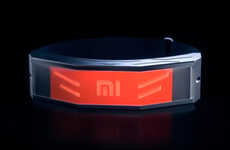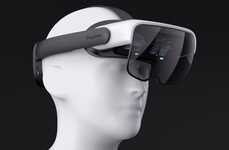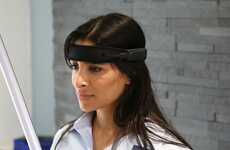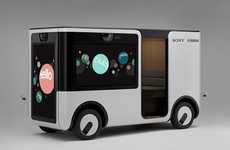
Facebook Recently Acquired the New Startup Named 'CTRL-Labs'
Grace Mahas — September 24, 2019 — Business
Social media giant Facebook recently acquired a new brain computing startup called CTRL-Labs that allow users to control their devices without a keyboard or mouse -- just using their minds.
CTRL-Labs described its technology as a "non-invasive" wristband that "seeks to read neurons transmitted from the spine which carry instructions for muscle movement, potentially enabling such commands to be carried out beyond the human body." This new telekinesis technology can only carry out simple action, however, it could revolutionize the way users interact with technology on a daily basis.
The new acquisition will also have the co-founder of CTRL-Labs, Thomas Reardon, joining Facebook’s Reality Labs group, however, its unclear how many of the startup's employee will follow suit.
CTRL-Labs described its technology as a "non-invasive" wristband that "seeks to read neurons transmitted from the spine which carry instructions for muscle movement, potentially enabling such commands to be carried out beyond the human body." This new telekinesis technology can only carry out simple action, however, it could revolutionize the way users interact with technology on a daily basis.
The new acquisition will also have the co-founder of CTRL-Labs, Thomas Reardon, joining Facebook’s Reality Labs group, however, its unclear how many of the startup's employee will follow suit.
Trend Themes
1. Brain-computer Interfaces - The recent acquisition of CTRL-Labs by Facebook shows a growing interest in developing non-invasive technology that allows users to control devices with their minds, paving the way for new brain-computer interface applications.
2. Telekinesis Technology - The development of the non-invasive wristband by CTRL-Labs marks a significant achievement in telekinesis technology, opening up opportunities for other industries, such as healthcare and gaming, to follow suit.
3. Neurotechnology - With the acquisition of CTRL-Labs and its innovative use of neural signals to control devices, there is a growing trend in developing neurotechnology for consumer applications that can be leveraged by other industries such as manufacturing and transportation.
Industry Implications
1. Consumer Electronics - Brain-computer interface technology can revolutionize the way users interact with consumer electronics, providing opportunities for businesses to develop innovative products that are accessible and efficient for daily use.
2. Gaming - Incorporating telekinesis technology into gaming can create an immersive experience and open up new opportunities for gaming developers to create unique and engaging gameplay.
3. Healthcare - With the potential to read neurons transmitted from the spine, there is an opportunity for neurotechnology to be used in healthcare for patients with movement disabilities, allowing them to control and manage their environment efficiently.
1.9
Score
Popularity
Activity
Freshness























